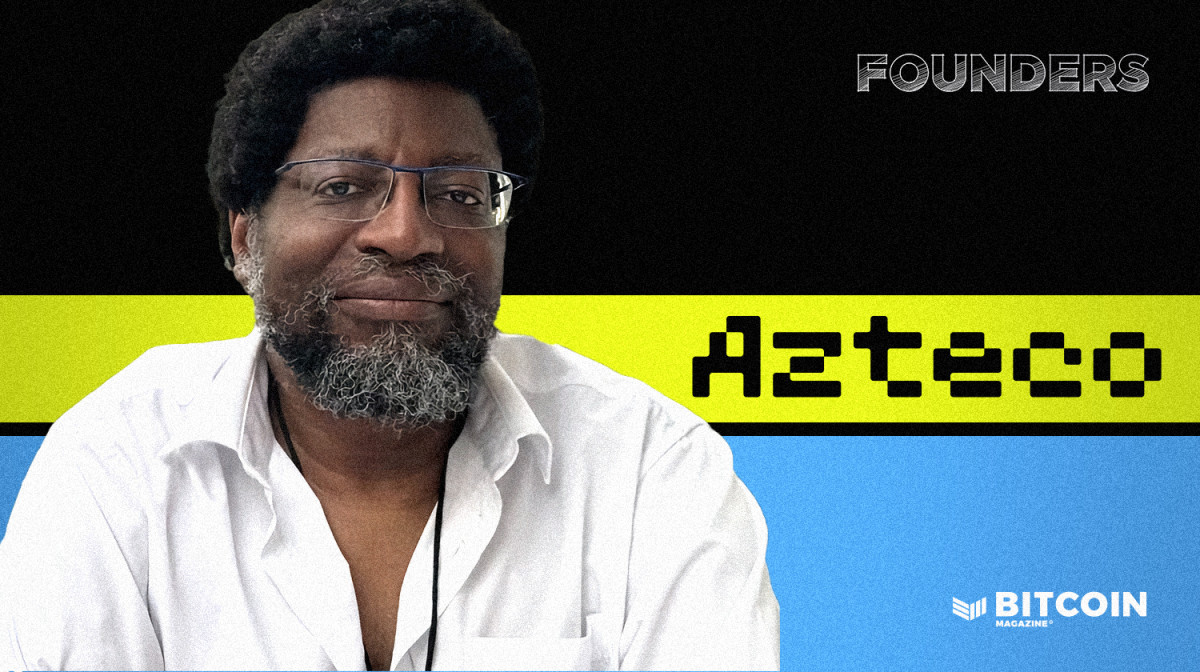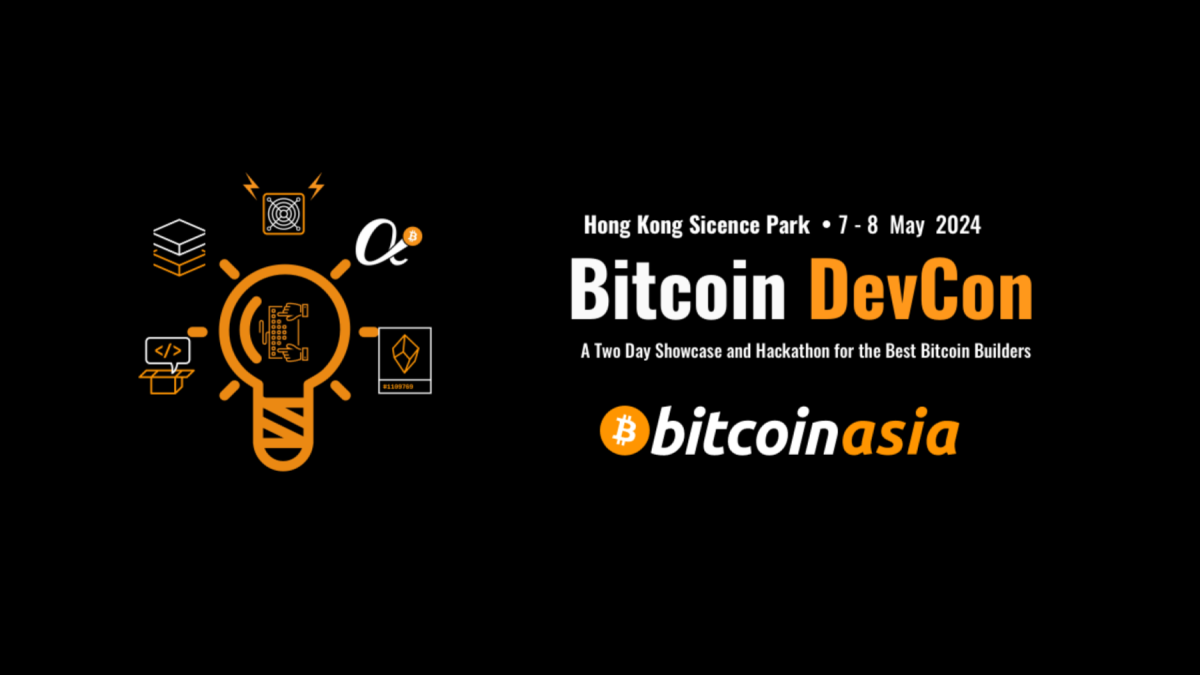Month: April 2024
Azteco Is Helping Millions Buy Bitcoin Without Sharing Their Identity
Company Name: Azteco
Founders: Alexander Fernandez and Paul Ferguson
Date Founded: 2014
Location of Headquarters: Santa Monica, CA
Amount of Bitcoin in Treasury: Not disclosed
Number of Employees: 12
Website: https://azte.co/
Public or Private? Private
When Alexander “Akin” Fernandez first conceptualized Azteco over a decade ago, he simply wanted to make bitcoin easier to obtain. He wanted people to be able to purchase bitcoin as seamlessly as they were able to buy a gift card, and so he developed a system in which people can purchase prepaid bitcoin vouchers for as little as $10, redeemable in a minute.
Azteco vouchers are now available in over 190 countries, purchasable online or with cash with in-person vendors. The main advantage to buying BTC via Azteco vouchers is the fact that you don’t have to disclose your identity to do so, not to mention the process of buying a voucher is quick and easy. Azteco offers both on-chain and Lightning capabilities, giving users the choice to redeem their BTC on either the Bitcoin base chain or the Lightning Network, a Layer 2 payments network built on top of the Bitcoin blockchain.
According to an estimate from Fernandez, over one million people have already purchased Azteco vouchers. But his aspirations are far beyond the already-impressive number of vouchers thus sold: he has his sights set on Azteco servicing a customer base of over 30 times that, as Azteco does its part in “normalizing” Bitcoin.
A transcript of our conversation, edited for length and clarity, follows below.
Frank Corva: Where did the inspiration for Azteco come from?
Akin Fernandez: It came from my own experience of finding out that getting bitcoin is very difficult. I realized it doesn’t have to be like this. We could use a familiar system like a top-up voucher, which billions of people use to top up their mobile phones, and apply that process to getting bitcoin. All we have to do is build a software, put distribution in place, and then it should just work. And lo and behold, it does.
Corva: Did you have a particular customer base in mind when you designed Azteco?
Fernandez: Yes, I had myself in mind. I wanted to be able to get bitcoin without having to make any kind of fuss or effort to do it. I wanted to be able to go to the supermarket, buy $20 worth of bitcoin and put it straight onto my wallet. And I’m not unique. I could assume that there were other people who were like me who could understand the proposition and the ease of use and who would take to it like a duck to water.
You find that with inventions, many times they come about because people are solving problems for themselves, not as a means to get rich or for any reason other than to solve their own problems. And because people are similar, they solve other people’s problems, too.
Corva: Speaking of your own experience. I’ve read that you were unbanked for a period of time. Is this true and could you expand on it, if so?
Fernandez: Well, I became unbanked for a reason that I, until this day, don’t know. I went down to “my” bank to cash a check, and they couldn’t find my account in the system. I had received no communication from them in writing or in any way. All of a sudden, I had no bank account. So, for many years after that I didn’t have access to credit cards or anything that other people in the West take for granted.
This taught me a very, very big lesson about how difficult it is to do anything in the 21st century if you don’t have access to banking facilities. You can forget shopping online. You can forget any kind of convenience of going into a store and paying with a card. All of that goes away.
So, when I was working on Azteco, it was made clear to me how powerful a tool it was going to be, because, with Bitcoin, you cannot be unbanked by any third party. You have control over your synthetic money.
Corva: I’ve heard you use this term “synthetic money” before, and you’ve discussed how we shouldn’t refer to bitcoin as actual money. Why is it important that we do this?
Fernandez: It’s important because it’s true. Bitcoin is not money — it’s a database. Can it be used as money? Of course. It can be used as very, very good money. It’s a good simulation of money. But it doesn’t have to be money for it to be useful.
Also, if you call bitcoin money, all the regulations that the state has imposed on actual money can be superimposed or brushed over Bitcoin inappropriately, making it hard to use and slower to spread. So, it’s very important to tell the truth about Bitcoin. Bitcoin has taken so long to get into every nook and cranny because there’s been this misconstruing of it as money.
WhatsApp reached a billion people in four and a half years. That’s the kind of spread into people’s phones that we’d expect if the rails to get onto Bitcoin were frictionless, just like they are with WhatsApp.
The fact that Bitcoin has not reached that number of people indicates that there’s something wrong in the way people are thinking about it, and so it’s important for us to think about it correctly.
Corva: How many people is Azteco reaching? Put another way, how many vouchers did Azteco sell in Q3 or Q4 of 2023?
Fernandez: The actual numbers I don’t have at hand being the CEO and not the CFO. But we had our biggest ever month last month. I was told this yesterday. The number of vouchers we’re selling is increasing, and this is a direct result of our increasing our distribution and also the sentiment towards Bitcoin changing on a global scale.
We’re the easiest way to get bitcoin. When people discover us, they say two things: “First of all, why isn’t everything as easy as this?” and “How come I haven’t heard of this before?”
Things are synergizing and coming together to bring us to a point where we’re a global force for good and for getting Bitcoin to the people who need it the most — the unbanked and the people who don’t have access to financial rails or people who just don’t want to be the victims of the financial rails.
The old school crop of Bitcoin businesses that have been serving people over the last 10 years all believe that Bitcoin is money and make it very difficult to get an account. Everybody’s so inured to the idea of having a bank account or an account of any kind, whether it’s through email or anything else. The assumption immediately is, “Well, of course, I have to have an account in order to use this service.”
With Bitcoin, that’s not true, though. No accounts are necessary. [Some] wallet companies are doing this correctly. One of them is Samourai Wallet and another is Wallet of Satoshi where you don’t need to open an account to use your own money.
They’re saying you shouldn’t be able to use bitcoin without having an account. That’s what they’re trying to do in the EU.
Corva: We’re doing it here in the US with the Digital Asset Anti-Money Laundering Act (DAAMLA), too, the bill that Elizabeth Warren drafted.
Fernandez: These people are oath breakers. They’ve sworn an oath to defend and uphold the Constitution, which guarantees the free speech of every single American. Bitcoin is speech. It’s a database where speech is written down and stored and transmitted from one person to another.
And lest anyone think that I’m picking on the Democrats and not the Republicans, Cynthia Lummis has written an absolutely appalling bill that I took great pleasure in tearing to pieces on my blog.
They don’t understand what their role is as a public servant. A servant is not in control of its masters. A servant is obedient to the electorate. It’s not their business to tell people you have to KYC to use bitcoin.
Corva: On the topic of America and KYC-free bitcoin, do you see people using Azteco because they want KYC-free bitcoin?
Fernandez: In order for the American market to be cracked, the service has to be explained. People have to be deprogrammed. They don’t understand that bitcoin is not a vehicle to make you earn more fiat.
People need to be broken out of these bad habits to be shown that actually there are better ways to get things done. The perfect example of this is WhatsApp.
Before WhatsApp, people used to pay for SMS messages, while the idea of this is now unthinkable. A similar process has to happen with Bitcoin where you can send money to family members without having to go through a third party or pay exorbitant fees or identify yourself or anything like that.
With Bitcoin, you [also] get other subtle benefits. Hyperinflation is starting to kick in and people are starting to realize that there’s something wrong with the money.
People find it very difficult to go to the root cause of the prices going up at McDonalds. Let’s say they did find out the cause, what could they do about it? They could go and get bitcoin, but it’s several steps down before these people are going to see bitcoin as the answer.
Corva: I agree.
Fernandez: Also, the current crop of businesses — big businesses like Binance, Coinbase — are synonymous with bitcoin. Azteco needs to be synonymous with getting bitcoin. The vast majority of people on earth are not rich. They don’t have $100,000 to spend on bitcoin. They live day to day.
Since these people are not investors and they don’t have spare money to keep in bitcoin in the hopes that it’s going to go up — which of course it will — they need to have bitcoin as daily money for everyday spending.
Once you start talking about these things, the business opportunities and models start to just fall out of the conversation. All of these Cynthia Lummises and Elizabeth Warrens prevent these business models from emerging because they’re regulating something they have no business regulating.
Corva: Speaking of other businesses, I’ve heard you say good things about Machankura, a protocol that makes it easier for Africans to use bitcoin in a KYC manner, and that it serves as a compliment to Azteco. What other companies in the Bitcoin space are a compliment to Azteco?
Fernandez: Ethical Bitcoin wallets are a good compliment. By ethical, I mean Samourai Wallet and Wallet of Satoshi. I know that some people don’t like Wallet of Satoshi because the architecture on the backend is not to their liking, but these people don’t run businesses — they don’t know how difficult it is to do these things.
The newest entrant to this is the Bitkey wallet. This Bitkey wallet is absolutely unbelievable. They’ve thought about this properly. The user interface and user experience — it’s going to make everybody change their game.
I’ve been saying for a long time that somebody like Apple, Microsoft or some other company is going to get into Bitcoin and bring all of that user experience thinking to the process of using Bitcoin. The current crop of companies have not thought about user experience.
Jack Dorsey’s Bitkey has been a kick in the backside to a lot of people who realize that we can’t just carry on doing what we want to do and expecting people to just accept it — the idea that you have to write down your mnemonic before you receive your first transaction. It’s completely crazy.
If Apple developed its own Bitcoin wallet or clones one of the Bitcoin wallets out there, Bitcoin is going to be exposed to people in a way that’s very easy to understand, very easy to consume. There will be the new generation of Bitcoin users for whom Bitcoin is totally normal — not threatening, intimidating or frightening.
Corva: The same way that using WhatsApp or Uber is normal now…
Fernandez: That’s exactly right. Bitcoin has to become boring.
Bitcoin DevCon To Take Place Alongside Bitcoin Asia
In addition to showcasing the world’s most important Bitcoin companies and leaders of today, Bitcoin Asia is also a platform for the next generation of Bitcoin startups to meet, build, and get in front of the community. In support of the upcoming generation of builders, we will be giving a platform for early-stage teams to put their ideas and products to the test. Bitcoin DevCon is the premier forum for Bitcoin innovation, designed for developers, visionaries and creators poised to build the future of Bitcoin. It’s not just a meetup; it’s a crucible of inspiration, where a community of passionate builders and engineers converge to bring their groundbreaking ideas and innovations to life. The event will be taking place May 7-8, prior to Bitcoin Asia, at Hong Kong Science Park.
Bitcoin DevCon will offer more than just dialogue and presentations; it will provide a tangible platform for contributors across various disciplines—builders, engineers, designers, researchers, and artists—to catalyze their ideas into tangible innovations. This event embodies the spirit of collaboration, empowering attendees to not only engage with the Bitcoin movement but to drive it forward with significant momentum.
Bitcoin Hackathon Day on May 7 is an immersive experience dedicated to learning, sharing, and collaboration. Dive into the latest Bitcoin technology developments, forge ideas with peers, and vie for a significant prize pool. Beyond competition, this day is about turning innovative ideas into reality. This year’s focus is on Bitcoin’s Layer 2 solutions. Choose your preferred Layer 2 platform, develop your project, and compete for prizes and potential funding from leading foundations and investors in the industry. You can apply here to participate in the hackathon.
Demo Day on May 8 is dedicated exclusively to startup demos and pitches, showcasing the best of what’s being built in the Bitcoin ecosystem. This platform and stage are designed to harness the collective power of innovation and help builders get the support they need, whether in the form of teammates, capital or partnerships.
Attendees and judges representing top Venture Capital firms including Satoshi Labs, UTXO, CMS, Electric Capital and Multicoin Capital ensure promising projects find the support they need to transition from vision to reality. Whether you’re navigating the Bitcoin space for the first time or you’re an established expert, Bitcoin DevCon promises an immersive exploration of cutting-edge technologies, acting as a global nexus for the Bitcoin community and a catalyst for innovation and creativity. You can apply here to participate in Demo Day.
Join us for Bitcoin DevCon, May 7-8 at Hong Kong Science Park, for an incredible event that promises to showcase the best of Bitcoin builders.
The Weekly Reorg: Bitcoin Fashion Week
In case you missed it, Bitcoin Season 2 released part of its Spring/Summer collection last week.
Amongst other things, Mezo, a “Bitcoin economic layer” came out of stealth with a $21 million fundraising round. Alpen Labs announced a $10.6 million bankroll to bootstrap a Bitcoin-native zero-knowledge infrastructure.
Another posse of blockchain designers, including the folks at Starkware, got together and launched the L2O Consortium “to set standards for trustless applications and Layer 2s.”
Of course, nobody knows what this all means, but it’s provocative. It gets the people going, the capital frothing, and the industry buzzing. Eight-figure seed rounds are getting thrown around and some pretty major venture players are making a comeback. Almost every day, a new layer is announced or some “Bitcoin-native” protocol you’ve never heard about announces that its users have locked a bazillion dollars worth of bitcoins into their “trustless” multi-sig protocol.
So it goes in a bull market, I guess. Curiously, some of the people involved will admit it feels more like performance art than legitimate engineering. Remember the Rick Owens freak runway shows? It’s flashy alright but who’s going to wear this stuff?
Keep in mind most of the new gadgets being proposed have yet to take off their training wheels anywhere they’ve been implemented. Rollups on Ethereum, for example, are still just dressed-up multi-sig. Similarly, this new crop of Bitcoin-adjacent protocol seems content launching with no product or “decentralization on the roadmap.” Under the layers of vapid marketing and technical mumbo jumbo, it’s hard to find a trust model that is much better than the simple and often maligned Liquid federated sidechain.
Forget unilateral exit, most of the “Layer 2s” on offer today can hardly qualify for the term under our admittedly loose policy here at Bitcoin Magazine.
To make matters worse, variants of proof-of-stake have crept into the design space despite Ethereum’s abysmal performance since its transition. Not surprisingly, the conversation has already devolved into ponzinomics to bootstrap the speculative flywheel. Colloquially styled “points,” a new token contraption has burst onto the scene and is all the rage amongst the designer crowd. This new liquidity farming fad requires users to deposit their bitcoins (and those of friends and family) somewhere in exchange for, you guessed it, yield.
They’re calling it gamification this time around. I think it’s peak crypto nihilism. Fast fashion has officially made it into Bitcoin!
The Emperor Has No Clothes?
Speaking of catwalks and clownishly dressed individuals, the crew at Taproot Wizards recently unleashed pandemonium on the aspiring Layer 2 community by going at its most prized science project, BitVM.
My esteemed colleague Shinobi put together a decent recap of the event. I wont bother you with the technical details but, of course, the claims remain hotly contested to this day. At least a dozen new companies’ fate hangs in the balance here so you can imagine the smell when they were publicly outed to the fashion police.
Although I’m partial to the wizards’ arguments, we should probably hold off on writing the obituary for BitVM. Jumping through liquidity hoops appears to be one of the pervasive tradeoffs one has to make when designing trust-minimized protocols on top of Bitcoin. Lightning has given us inbound liquidity headaches for years. Proposals like Ark have been dismissed because of the massive UTXOs operators have to fund. Maybe BitVM bridges can be designed to mitigate the upfront liquidity requirements of operators. At least, the issue is probably not enough for everyone to drop everything and go home.
The unfortunate takeaway from this saga is that everyone involved comes away looking a bit amateurish. Despite claims to the contrary, some due diligence was clearly skipped. The issue could’ve been run through a bit more collective brain cells before publishing and you can tell the targets all felt pretty blindsided by the announcement.
To tie this all up, the wizards have just come out with their derivative proposal. It’s hard not to get the impression that this was a bit of a setup motivated by marketing purposes. Then again, they’re grown men wearing wizard hats, what do you expect?
On the other hand, it is a valid issue and the response from “team” BitVM hasn’t been exactly gracious either. You’d expect thicker skin from researchers who have been around the block. Banning people from a Telegram working group and hand-waving away the entire premise does not serve the interest of the community they are building for. They can disagree with the conclusions but the obvious outcome is that the audience and interest in BitVM have now grown beyond the small engineering circles where it was fomenting. Many have suggested it was probably the first time the mechanism was communicated in an accessible way. It was a missed opportunity for its advocates to leverage this attention and steer it their way if they thought the project was misrepresented.
Hopefully, this is all just a failed dress rehearsal because I don’t see how this is very inspiring for anyone seriously interested in contributing to this space.
A grand finale
Of course, a circus show isn’t complete without the clown act.
The hottest protocol designer in town is preparing to showcase his latest line just in time for the halving this Friday. Runes, a protocol for fungible tokens, is probably the most anticipated drop since the Jordan 1s. As we speak, hundreds of users are syncing up Bitcoin nodes for the first time in their lives in preparation for the festivities. The blockchain is expecting a record crowd for this event so be advised that tickets could get expensive.
As for myself, I’ll probably just watch from my balcony in the comfort of my safe and ever-reliable Bitcoin jeans. Tick tock, next block.
Dollar hits 5-month high against euro; yen weakest since 1990
Post Content
How Bitcoin could impact financial inclusivity among minority groups
From an obscure footnote known to only the more tech-savvy in a much more insular internet, Bitcoin has transformed into an important player in today’s financial landscape.
However, while we’re all keenly aware of BTC’s impact on financial markets (a more or less permanent fixture of the news cycle), we often forget to take a step back and look at how this new frontier affects real change and real people.
For those historically marginalized by traditional banking due to barriers like poor credit or lack of accessibility, BTC has emerged as a vital financial tool. Its impact is most profound in developing countries, where access to banking still poses a challenge for many.
Here, Bitcoin serves as more than a currency or an investment; it’s a means to engage in essential financial activities, such as sending and receiving money, that would otherwise be out of reach.
Forget, at least for a minute, the speculative potential in terms of financial gain—the true value of Bitcoin lies in its potential to level the financial playing field, offering access to financial tools that were previously exclusive to those with more established economic backgrounds.
Amid its fluctuating value, the enduring promise of Bitcoin is its contribution to financial inclusivity, making it a beacon of hope for more equitable access to financial services worldwide.
Historical context of Bitcoin and financial inclusivity
Bitcoin was born out of the financial turmoil of the late 2000s, with its creator(s) aiming to forge a decentralized currency that could bypass traditional banking systems and help society at large traverse a repeat of the 2008 financial crisis.
This vision was not just technical but deeply ideological, seeking to empower individuals with financial autonomy.
At its core, Bitcoin promised to make financial services accessible to anyone with internet access, regardless of their standing with conventional financial institutions.
This promise has seen tangible realization in countries like Nigeria, where traditional banking services are out of reach for many. In Nigeria, Bitcoin has become more than a speculative asset—for instance, with the country’s significant diaspora, Bitcoin facilitates remittances, enabling Nigerians living abroad to send money home more efficiently and at lower costs compared to traditional banking services.
In Argentina, Bitcoin has emerged as a crucial financial tool amidst the country’s ongoing economic challenges, including high inflation rates and currency devaluation. For Argentinians, Bitcoin offers a more stable store of value compared to the national currency, the Argentine peso, which has suffered from significant depreciation over the years.
A similar trend can be noticed in Ghana, where the annual inflation rate is predicted to land in the 13% to 17% range in 2024.
In Venezuela, a country grappling with political instability and economic crises, Bitcoin has found a unique role beyond just a means of preserving wealth against hyperinflation. Here, Bitcoin is being utilized to support microfinance initiatives and charitable donations, directly impacting the lives of those in need. Organizations and platforms leveraging cryptocurrency can bypass traditional financial systems, which are often inaccessible or unreliable for the country’s impoverished populations, to provide direct financial assistance.
Moreover, for entrepreneurs and small business owners the world over, it offers a means to engage in international transactions without the need for bank accounts or the risk of currency devaluation. It’s both a hedge against crisis and a vessel of freedom against authoritarian regimes, but the decentralization schtick isn’t
The rise of Bitcoin ETFs and institutional interest
By allowing investors to gain exposure to Bitcoin’s price movements without the complexities of directly buying, storing, and managing the digital currency, BTC ETFs offer a familiar, regulated avenue for institutional investors to enter the Bitcoin space.
Previously, the volatile and unregulated nature of Bitcoin deterred many institutional investors. However, with the advent of ETFs and other regulated investment products, these entities can now participate in the cryptocurrency market, bringing with them substantial capital inflows and increased legitimacy and stability to Bitcoin and the broader crypto market, which will only increase with further adoption.
This institutional foray into Bitcoin has a dual impact.
On one hand, it introduces a level of stability and liquidity previously unseen, potentially making Bitcoin a more attractive asset for both retail and institutional investors.
On the other, it represents a shift from Bitcoin’s original ethos of decentralization and democratization of finance.
Another point to consider is that institutional interest isn’t limited to private, for-profit enterprises—with countries like El Salvador, which recently took custody of its national Bitcoin treasury showcasing that, slowly but surely, the general attitude of governments towards cryptocurrencies is also changing with the times.
Potential impacts of institutionalization on accessibility
On the one hand, these developments can enhance Bitcoin’s appeal by contributing to market stability and reducing volatility—a key concern that has deterred a broader demographic from embracing cryptocurrencies.
The entry of institutional investors can also increase liquidity in the Bitcoin market, potentially making it a more reliable asset for individuals and businesses worldwide.
However, the flip side of institutionalization is the potential increase in barriers to entry for marginalized groups.
The very essence of Bitcoin’s appeal to these groups is its accessibility: the ability to participate in the financial system with nothing more than a smartphone and an internet connection. As regulatory frameworks become more stringent and the market more institutionalized, the processes for acquiring and using Bitcoin could become more complex.
Requirements such as rigorous identity verification and compliance with financial regulations, while necessary for fraud prevention and financial security, could inadvertently sideline those without formal identification or those living in regions with less regulatory clarity.
Moreover, the shift towards institutionalization might lead to a concentration of wealth and power within the Bitcoin ecosystem, reminiscent of traditional financial systems.
This concentration could undermine the decentralized ethos of Bitcoin, making it less about empowering the individual and more about serving institutional interests.
The challenge lies in finding a balance: leveraging institutional interest to bring stability and legitimacy to Bitcoin while ensuring that its revolutionary promise of financial inclusivity remains intact.
Financial inclusion and cryptocurrency adoption
Sub-Saharan Africa, with its blend of limited banking infrastructure and high mobile penetration, has emerged as a fertile ground for cryptocurrency adoption. The region, marked by its smaller overall market size in terms of traditional financial metrics, shows a significantly high level of grassroots cryptocurrency usage.
Nigeria, for example, not only ranks second on the Global Crypto Adoption Index but also leads Sub-Saharan Africa in raw transaction volume, as well as the world in P2P exchange trade volume ranking. Other countries like Kenya, Ghana, and South Africa also feature prominently on the index, underlining the widespread acceptance of cryptocurrencies as viable financial instruments
The adoption is driven largely by practical necessities rather than speculative interests, with cryptocurrencies serving as a hedge against inflation and currency devaluation.
In Ghana, where inflation surged to its highest level in two decades at the tail end of 2022, and in other nations like Nigeria, Kenya, and South Africa facing similar economic challenges, cryptocurrencies have become an attractive means of preserving wealth. The shift towards digital currencies, particularly Bitcoin, and more recently, stablecoins, reflects a broader search for financial stability and freedom
Peer-to-peer transactions, especially prominent in Sub-Saharan Africa, account for a significant portion of crypto transactions, underscoring the region’s unique position in the global crypto landscape. This high rate of P2P transactions is attributed to the everyday use of crypto for retail payments, remittances, and commercial transactions.
The preference for crypto over traditional banking and financial services is not just a matter of convenience but a necessity in regions where local currencies are losing value, as seen in countries like Nigeria and Kenya
Through bypassing traditional financial barriers, cryptocurrencies offer expanded finance options to underserved markets, exemplified by initiatives like Empowa and Pezesha in Mozambique and Kenya that utilize blockchain to facilitate real estate development and connect MSMEs with global lenders.
Balancing institutional interest and financial inclusivity
As Bitcoin continues to navigate the waters between grassroots empowerment and institutional adoption, its future landscape presents a dichotomy.
On one side, increased institutional interest brings stability and credibility, potentially making Bitcoin a more viable and trusted financial asset globally.
On the other, this shift could challenge the very inclusivity that has been a cornerstone of Bitcoin’s appeal, particularly among minority groups and in regions with limited access to traditional banking services.
To ensure that Bitcoin remains a tool for empowerment, a balanced approach is necessary. One potential pathway is the development of regulatory frameworks that encourage inclusivity.
Regulations could be designed to protect consumers without stifling innovation or access to cryptocurrencies. Additionally, the continued support and promotion of peer-to-peer platforms can empower individuals by facilitating direct transactions without the need for traditional financial intermediaries.
Conclusion
As Bitcoin evolves amidst rising institutional interest, its foundational role as an agent of financial inclusivity faces both challenges and opportunities. Ensuring that Bitcoin continues to serve marginalized communities requires a delicate balance, blending the stability brought by institutional involvement with its potential as a democratizing force.
One thing is certain—the future of Bitcoin hinges in large part on maintaining its essence as a lifeline for financial empowerment across the globe.
This is a guest post by Kiara Taylor. Opinions expressed are entirely their own and do not necessarily reflect those of BTC Inc or Bitcoin Magazine.
Dollar nears five-month high; sterling slips after wage data
Post Content
Sterling holds at five-month low after UK labour data
Post Content
Column-Funds make biggest bet against yen since 2007: McGeever
Post Content
Japan’s finance minister says he’s closely watching FX
Post Content
Asia FX weakens as M.East tensions, rate fears put dollar at over 5-mth high
Post Content









